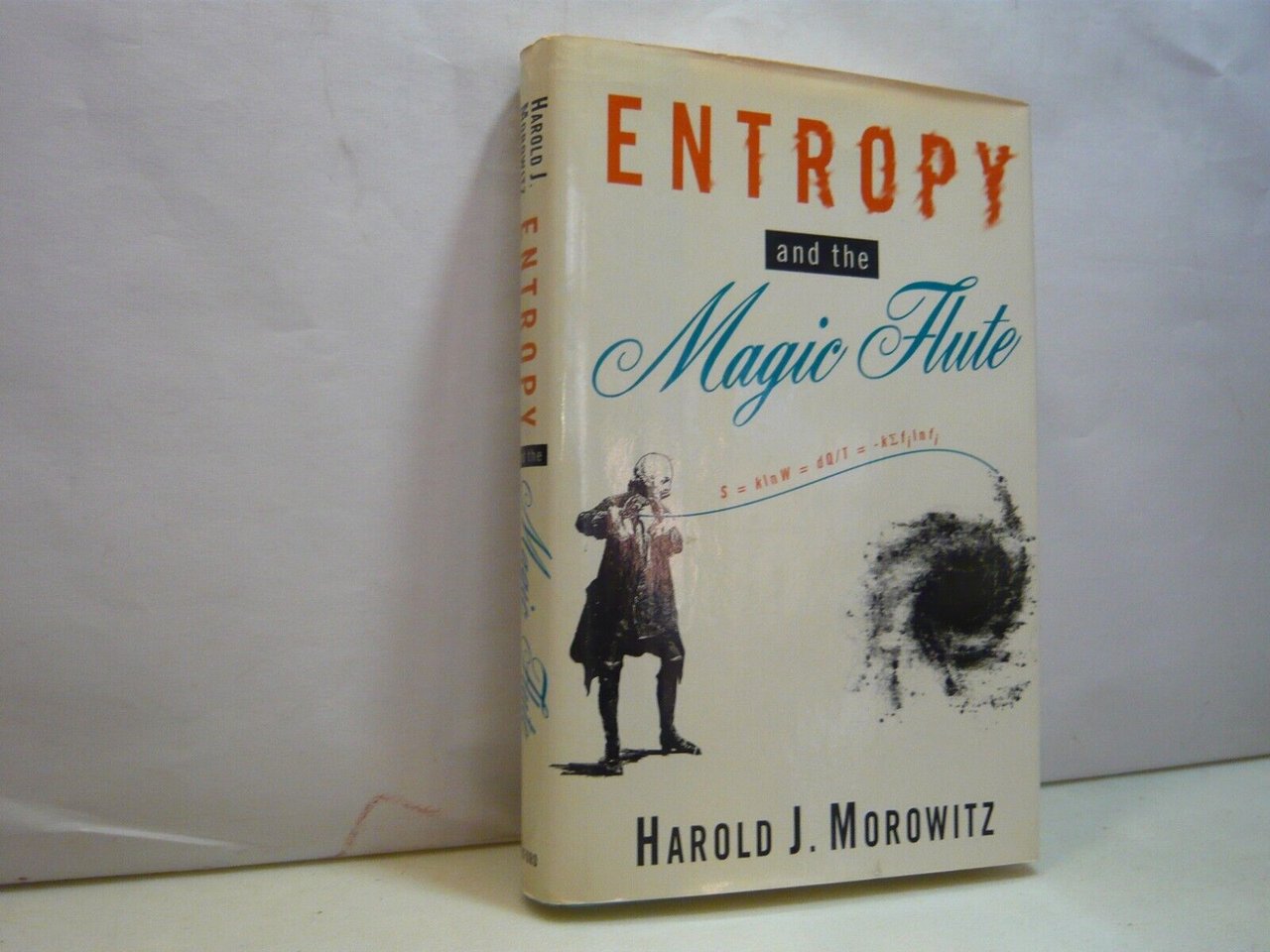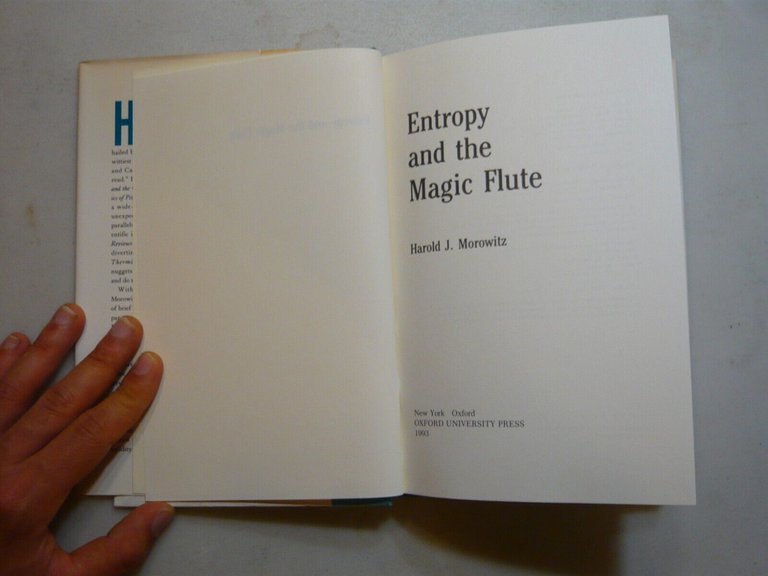

Rare and modern books
Morowitz,ENTROPY AND THE MAGIC FLUTE,Oxford University Press, New York, 1993
unavailable
Modo Infoshop (Bologna, Italy)
Ask for more infoThe correct shipping costs are calculated once the shipping address is entered during order creation. One or more delivery methods are available at the Seller's own discretion: Standard, Express, Economy, In-store pick-up.
Bookshop shipping conditions:
For items priced over €300, it is possible to request an instalment plan from Maremagnum. Payment can be made with Carta del Docente, Carta della cultura giovani e del merito, Public Administration.
Delivery time is estimated according to the shipping time of the bookshop and the courier. In case of customs detention, delivery delays may occur. Any customs duties are charged to the recipient.
For more infoPayment methods
- PayPal
- Credit card
- Bank transfer
-
-
Find out how to use
your Carta del Docente -
Find out how to use
your Carta della cultura giovani e del merito
Details
Description
ENTROPY AND THE MAGIC FLUTE
Oxford University Press, New York, 1993
Copertina rigida con sopraccoperta,22x14,5 cm, pp.224
Peso: g. 417
cod 2614
CONDIZIONI DEL LIBRO: sopraccoperta leggermente ingiallita.
Nel complesso in ottime condizioni.
Dalla quarta di copertina:
Newton (on the occasion of the 300th anniversary of his Principia, a date that passed virtually unnoticed
except by Morowitz), Murray Gell-Mann, and Aristotle. Of Aristotle, Morowitz observes that “most people
whose information comes from academic philosophy fail to appreciate that—among his many fields of
expertise—first and foremost, Aristotle was a biologist.” Indeed, fully a third of Aristotle’s writings are
on the life sciences, almost all of which has been left out of standard editions of his work. Many other
pieces focus on health issues—such as America’s obsession with cheese toppings, the addiction to
smoking of otherwise intelligent people, questionable obstetric practices—and several touch upon ethics,
whistle-blowing, and scientific research. There is also a fascinating piece on the American Type Culture
Collection, a zoo or warehouse for microbes that houses some 11,800 strains of bacteria, and over
3,000 specimens of protozoa, algae, plasmids, and oncogenes.
Here then are over forty light, graceful essays in which one of our wisest experimental biologists
comments on issues of science, technology, society, philosophy, and the arts.

